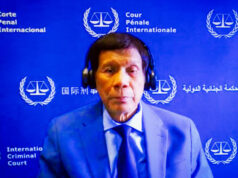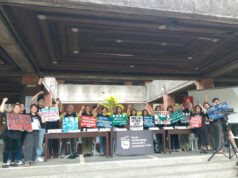Gov’t told to form agency for education oversight

PHILIPPINE LAWMAKERS should consider creating an independent commission tasked to oversee the country’s education agencies to improve schooling quality amid its current dismal state, a state think-tank said.
The proposed commission would help improve education quality by closely monitoring the effectiveness of policies being implemented by the state’s education agencies, attributing learning failures to the lack of an accountability system governing them, The Philippine Institute for Development Studies (PIDS) said in a discussion paper published on Oct. 18.
“Creating a new independent agency dedicated to educational oversight appears to be a straightforward solution to improving the governance of the PETS (Philippine Education and Training System),” the paper read in part, “The study recommends that the government explore the value of a legislative bill that would develop and establish [the] independent body.”
The Philippine education system is in dire straits as Filipino students emerged as among the weakest in math, reading, and science, according to the 2022 Program for International Student Assessment. The Philippines also ranked 77th out of 81 countries and performed worse than the global average in all qualities.
The same report also found that fifteen-year-old Filipino students ranked 63rd out of 64 countries in terms of creative thinking.
Establishing an oversight committee tasked to monitor the Department of Education (DepEd), Commission on Higher Education (CHED), and Technical Education and Skills Development Authority (TESDA) would whip them straight, encouraging more effective educational reforms towards resolving the learning crisis, according to the PIDS.
LACK OF CLARITY
“Some of these issues have fallen through the cracks due to the lack of clarity as to which agency is responsible and how to hold it accountable for the country’s poor educational performance,” PIDS stated, referring to a lack of coordination among the agencies and seamless curriculum across educational levels for learners.
“This strategy… is foundational for successful development and implementation of other reforms that require strong institutional incentives,” the think tank added.
The proposed commission would conduct regular assessments of the education agencies, measuring the “quantity and quality of outputs, outcomes, as well as the cost-effectiveness of achieving them,” according to a draft bill included in the paper.
It should also establish objective assessment criteria and indicators for DepEd, CHED, and TESDA, with the commission determining how aligned their projects and reforms are to the country’s socioeconomic plans, PIDS added.
The proposed oversight commission could be integrated with the Commission on Audit (CoA), it said, noting similarities between their mandates. “…This integration could provide a formal legal basis for [the commission] within CoA to perform audits on educational institutions such as DepEd, CHED, and TESDA.”
The PIDS report, titled “The Impact of Trifocalization on Philippine Education Outcomes and the Coordination Issue,” was prepared by Vicente B. Paqueo, Johanna Marie Astrid A. Sister, Solomon R. Sarne, Marie Louissie Ynez U. Lavega, Aniceto C. Orbeta, Jr., Michael R.M. Abrigo, and Ricxie B. Maddawin. — Kenneth Christiane L. Basilio



